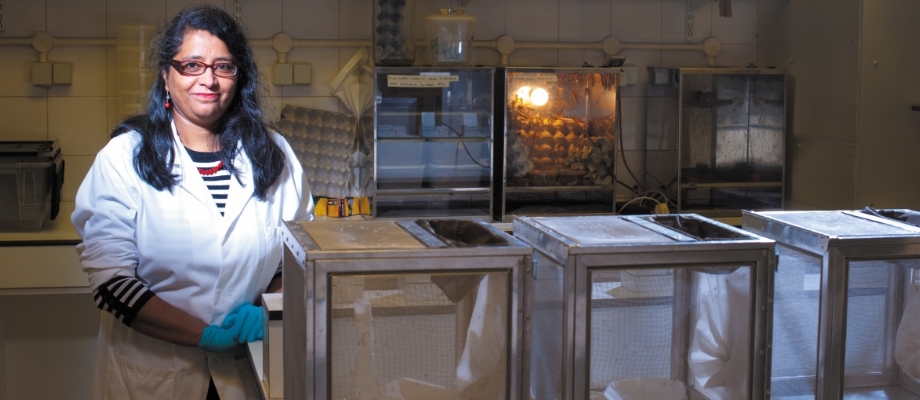Malaria control: prevent, treat and stop transmission

Malaria is the most deadly parasitic disease (216 million human cases in 91 countries with 445,000 deaths, WHO 2017), caused by the single celled organism Plasmodium that is transmitted by female Anopheles mosquito.
There has been progress in controlling the disease, however the lack of vaccine, paucity of current drugs, and recent reports of drug resistance to artemisinin combination therapies (ACT) in South East Asia present a great risk to the world population. Currently, most mortalities due to malaria are reported in Africa, and the spread of ACT resistance to Africa will have dire consequences, making this disease comparable in severity to zika or ebola.
Hence coordinated efforts are needed to not only treat the disease but also to understand and control the spread and transmission of these drug resistant parasites.
Research at the School of Life Sciences by the Malaria Lab at the University of Nottingham is aimed at understanding the fundamental biology of proliferative and transmission stages of malaria parasite, and which molecules are required by parasites at these stages to divide and develop within mosquito.
This World Malaria Day, please do come and learn the facts about malaria, how to identify it under the microscope and to see what research is done at the University of Nottingham.
This event takes place at B Floor Foyer, QMC,
10.00am-2.00pm, Wednesday 25 April.
Tags: disease, health, Malaria control, Malaria Lab, mosquito, parasite, Plasmodium, School of Life Sciences, World malaria day
Leave a Reply
Upcoming Events

